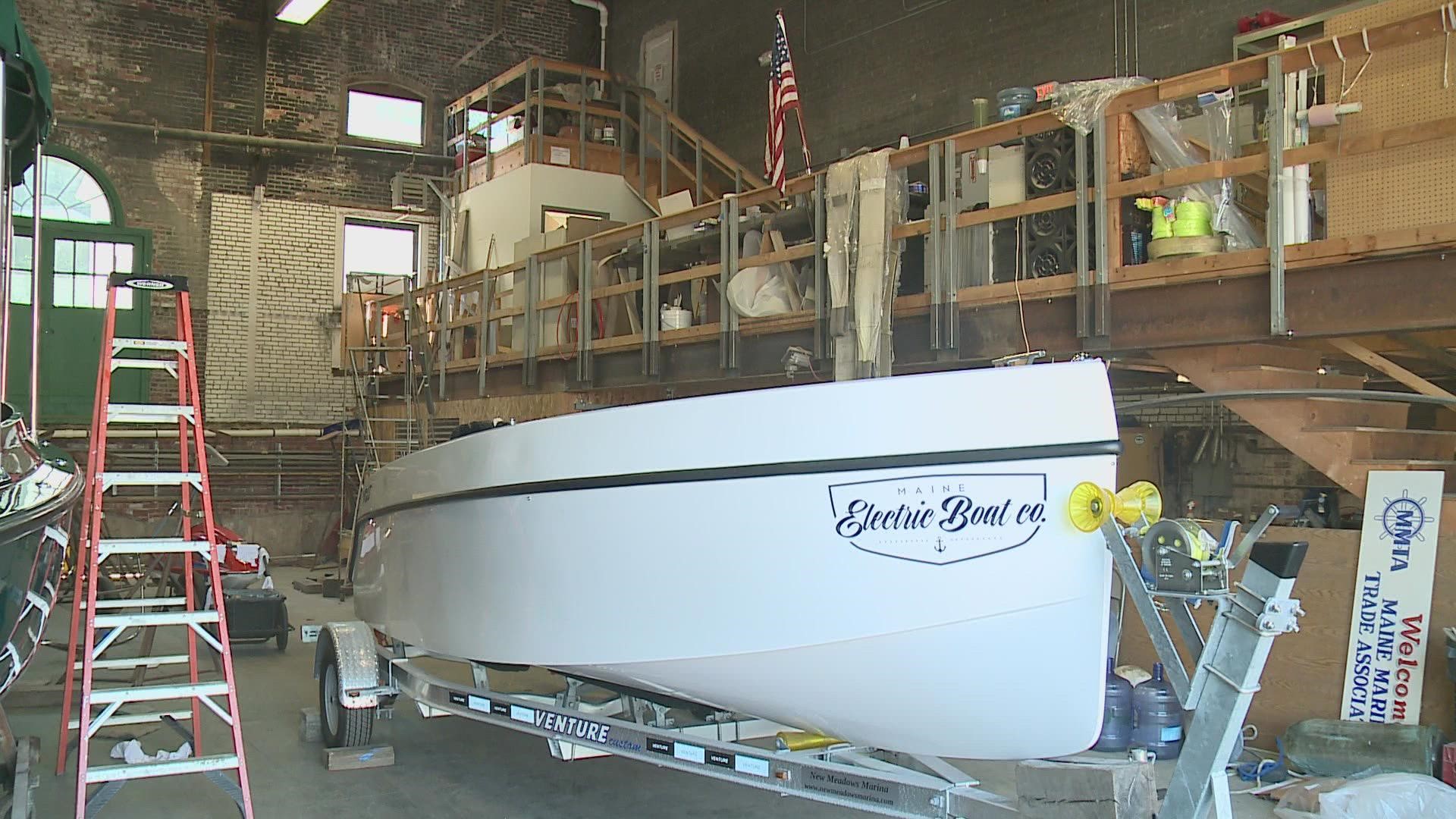BIDDEFORD, Maine — The slim, canopied boat slid almost noiselessly down the Saco River, making a speed of about seven knots.
The boat seats as many as eleven people, according to Matt Tarpey of Rumney’s Boat Yard, similar to the pontoon boats or party boats seen on many Maine lakes.
“I’ve called it a cocktail boat in the past, and people always say every boat is a cocktail boat,” Tarpey joked.
What makes the boat unusual is that the power is provided by electricity.
Tarpey believes he is on the leading edge of the development and use of electric boats. His separate business, Maine Electric Boat, currently sells a line of boats made in Canada, with the electric drive system made in Europe.
They also have a prototype, larger outboard motor from the same manufacturer, which he said can hit a top speed of about 30 knots.
“We’ve gone to various boat shows, the most recent being Rockland last year. And there was genuine surprise something electric could go that fast," Tarpey said.
He said a Rhode Island company called Flux Marine is planning to introduce its own bigger, faster electric outboard later this year, one of them equal to 70 horsepower. That, he said, will make electrics comparable in performance to many of the outboards now used on Maine’s coast and lakes.
Tarpey called that development a “game-changer” and said there is growing interest in the boating world from those willing to try electric motors to replace fossil-fuel-burning gasoline models.
”We’ve been getting a lot of calls from harbormasters, marinas, and oyster farmers that have caught wind of the projects we are working on this year and [the] first of next year. There’s a lot of interest,” he said.
There are clearly questions, however, primarily about the range of those battery-powered boats, and the process of recharging.
The Island Institute, a leading advocate for Maine’s coastal economy, is hoping to provide the answers.
The institute started a project to promote the use of electric outboards for the working waterfront as a way to fight climate change.
“A huge component of our work is bringing clean energy solutions to the marine economy in Maine,” Sam Belknap of the Island Institute said.
Belknap said the institute has held meetings with a variety of marine industries and found interest in being able to move to cleaner energy.
“Because they recognize how intimately the ocean and their sectors are influenced by climate change, and this is one small way they can start to limit their impact, by transitioning from fossil fuels to electric power,” Belknap said.
The institute’s primary focus is on the working waterfront, especially aquaculture businesses, according to Belknap. And that could lead to some of the answers about battery range and performance.
Belknap said the institute is conducting studies this summer, working with some of those businesses to determine how much their current motors are actually used during the day.
The projected battery range of the new, larger motors is estimated to be 90 minutes at full speed, but Belknap said much of the time the boats may be tied to a float or buoy while people are working, and not actually be moving. He said they are hoping to show that electrics can meet the working needs of those businesses.
Belknap is also hoping that grant and financing programs created by the institute will help commercial users make the switch to electrics, which will be more expensive because of the battery systems.
“We aren’t talking about an inexpensive effort, but it's far less cost than we will incur if we continue on the path of using fossil fuels to support our heritage industries,” Belknap said.
Belknap and Tarpey both predict the changes could come fairly quickly, once potential buyers see the power and reliability of the new generation of electric outboards.
It will also require the installation of fast charging on shore and developing other solutions for recharging boats on the water, which Tarpey said he is working on as well.
“By 2025, we will have 100 electric vessels on the working waterfront,” Belknap said. “As folks see this technology is functional and makes sense, reduces their downtime and their business costs, I think others will be quickly adopting this technology."

